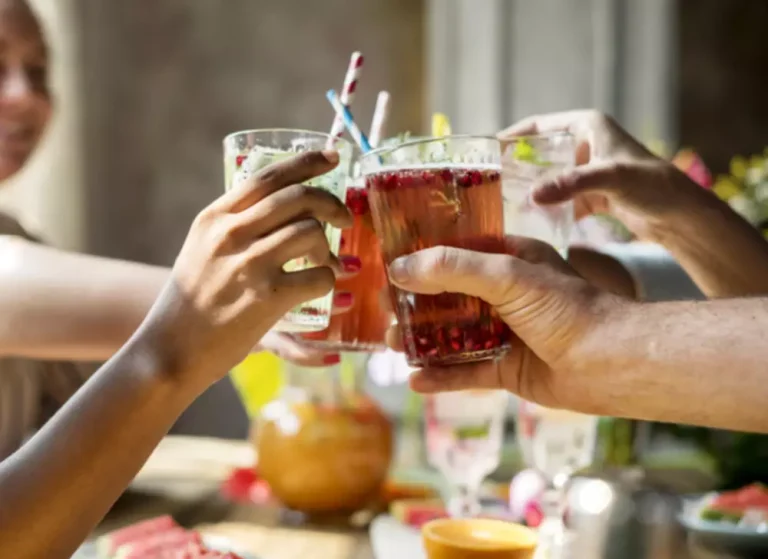20 Medications You Should Never Mix With Alcohol

The proportion of body water and body fat differs between men and women and between young and old people; women and older people generally have more body fat and less body water than do men and younger people. As a result, alcohol distribution throughout the body depends on a person’s gender and age. (A) Alcohol ingested through the mouth reaches the stomach, where a portion is metabolized by the enzyme alcohol dehydrogenase (ADH). The remaining alcohol enters the intestine, where most of the remainder is absorbed into the bloodstream and enters the portal vein that leads to the liver. In the liver, part of the alcohol is metabolized by ADH or cytochrome P450.
Medications You Should Never Mix With Alcohol
- Drinking alcohol with the medications you take to manage your diabetes can have the same effect, and the mix can also cause symptoms like nausea, vomiting, headache, rapid heartbeat, and sudden changes in your blood pressure.
- Cytochrome P450 (CYP) enzymes are a group of enzymes found throughout the body, primarily in the liver.
- Universal screening, careful prescribing choices, and patient education can help minimize the risks of combining alcohol with certain medications.
People can also have problems with motor control, memory, and behavior. Some arthritis medicines, when combined with alcohol, can cause ulcers, stomach bleeding, and liver damage. Here are some common antibiotic and antifungal medications that can potentially have worse side effects when mixed with alcohol.

Mechanisms of Alcohol-Medication Interactions
The remaining alcohol enters the general (i.e., systemic) circulation and eventually is transported back to the liver and metabolized there. The metabolism of alcohol in the stomach or during the first passage through the liver after absorption from the intestine is called first-pass metabolism. (B) Changes in blood alcohol levels (BALs) after oral alcohol ingestion and after intravenous administration of the same alcohol dose. Yet medications for alcohol use disorder Drug rehabilitation can work well for people who want to stop drinking or drink a lot less. At its worst, the consequences of mixing alcohol and medicines can be fatal. Combining a medicine that acts on the brain with alcohol may make driving a car or operating heavy machinery difficult and lead to a serious accident.

Guidelines for Preventing Alcohol Interactions

Cymbalta can cause liver damage.Antidepressants called monoamine oxidase inhibitors (MAOIs), like Parnate and Nardil, can cause serious heart problems when combined with alcohol. When mixed with beer or wine, they can also cause dangerously high blood pressure due to an alcohol byproduct called tyramine. Herbal medications currently are widely used, and many people assume that because these products Alcohol and Pills are “natural,” they also are safe to use. In addition, liver toxicities caused by various natural products have now been identified (Heathcote and Wanless 1995), and their combination with alcohol may enhance potential adverse effects.

Alcohol metabolism in the liver generates excessive NADH levels and thus reduces the levels of the compounds needed for gluconeogenesis, thereby contributing to a further drop in blood sugar levels. This response is particularly critical in diabetics taking medications that can cause hypoglycemia. Consequently, these patients should be advised to drink alcohol only with or shortly after meals.
- Through these metabolic changes, alcohol metabolism can substantially affect the body’s general metabolism and functioning.
- Combining alcohol with ibuprofen can lead to a higher risk of stomach upsets and stomach bleeds.
- These beverages contain a byproduct that when consumed with MAOIs can increase the risk of high blood pressure.
Having an alcoholic drink while you are taking medications to treat prostate conditions can cause dizziness, lightheadedness, and fainting. If you mix any type of anti-nausea drug with alcohol, the side effects of the medication can become more intense. Drinking even a small amount of alcohol while taking an antibiotic called Flagyl (metronidazole) can cause a severe reaction, making you extremely sick with nausea and vomiting. You will want to avoid alcohol for three days before you start and after you stop Flagyl. Connect directly with experienced nurse educators and academics and discuss your career goals.
- The National Institute of Health (NIH) conducted a study of over 26,000 adults from the National Health and Nutrition Examination Study (NHANES) to determine their alcohol and prescription drug use.
- Most of the remaining alcohol is then absorbed into the bloodstream from the gastrointestinal tract, primarily the stomach and the upper small intestine.
- Nearly 78% of older adults (over 65 years of age) who drink use such medications.
- Combine alcohol with prescription treatments like Lunesta or Ambien, and you may feel unusually drowsy, sleepy, and dizzy.
While these drugs make it less likely your body will form blood clots, they also make you bleed more easily. In addition to worsening the side effects of antidepressant medications, mixing these drugs with alcohol can also make symptoms of depression worse. Mixing =https://ecosoberhouse.com/ anti-anxiety and epilepsy medications with alcoholic beverages can cause slowed breathing, impaired motor control, abnormal behavior, and memory loss. The aim of this course is to encourage professional and ethical understanding of evidence-based clinical practice development in alcohol and other drugs nursing. It will provide students with an understanding of substance use issues from both an individual and public health perspective.
Moderate Alcohol Consumption and OTC or Herbal Medications
Alcohol is a common cause of heartburn, sour stomach,and indigestion, so you probably don’t want to head to happy hour if you’re experiencing any of these issues. We’ve all seen the cautionary label on pill bottles, telling us in big, bold letters to avoid drinking while taking the medication. “Alcohol can either inhibit or amplify the effects of the medication in an uncontrolled and unpredictable way,” says Kristine Arthur, MD, an internist at MemorialCare Orange Coast Medical Center in Fountain Valley, California. That’s true for both over-the-counter and prescription medications—and even mixing alcohol with natural remedies, like St. John’s Wort, can be problematic. The consequences of drinking while taking medications can range from minor (feeling a bit dizzy, for instance) to fatal. “While the effects of alcohol on virtually all classes of medication can be dangerous, what is scarier is the unpredictability,” he notes.